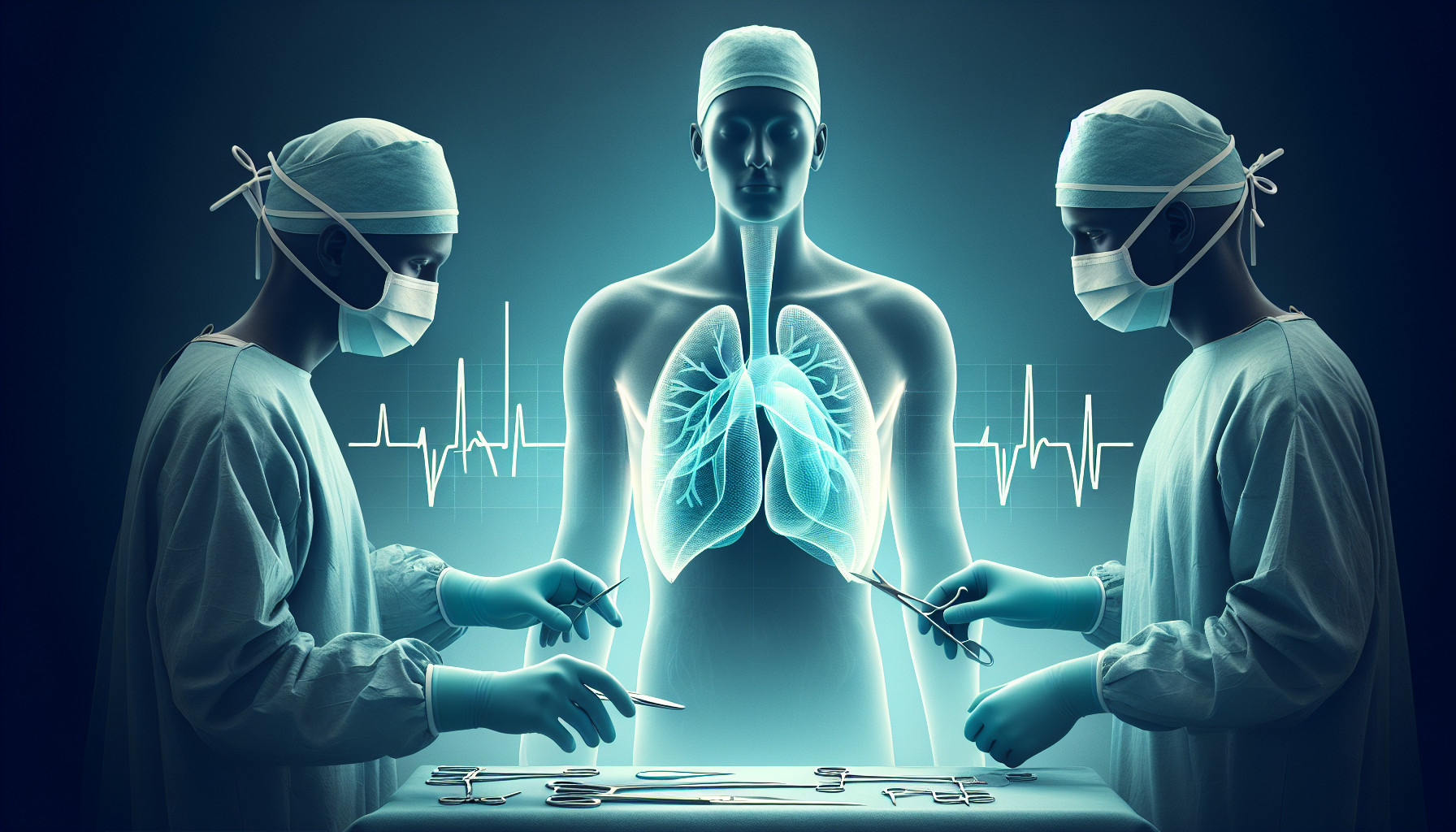Our Summary
This research paper examines the trends in lung cancer surgery in South Korea from 2010 to 2014. The number of lung cancer surgeries increased by 45.1% over this period, with a significant increase each year. More women and older people (70 years and above) had these surgeries, and the proportion of men under 65 having the surgery decreased. There were also changes in the type of surgery performed: more segmentectomies (removal of a portion of a lung), and lobectomies (removal of a lobe of the lung), and fewer pneumonectomies (removal of an entire lung). Finally, more of these surgeries were performed in Seoul compared to other areas. The study concludes that there has been an increase in lung cancer surgery among older and female patients, a decrease in the use of extensive lung removal, and a centralization of these surgeries in Seoul.
FAQs
- What were the main trends in lung cancer surgery in South Korea from 2010 to 2014?
- What changes were observed in the type of lung surgeries performed during the research period?
- Did the research find any significant differences in the demographics of patients undergoing lung cancer surgery?
Doctor’s Tip
A helpful tip a doctor might tell a patient about lung surgery is to follow the post-operative care instructions carefully, including taking prescribed medications, attending follow-up appointments, and avoiding smoking or exposure to secondhand smoke to promote healing and reduce the risk of complications. It is also important to engage in breathing exercises and physical therapy as recommended to help improve lung function and overall recovery. Additionally, maintaining a healthy lifestyle with regular exercise and a balanced diet can support long-term lung health.
Suitable For
Patients who are typically recommended for lung surgery include those with lung cancer, particularly in cases where the cancer has not spread beyond the lung and is localized. Other conditions that may warrant lung surgery include chronic obstructive pulmonary disease (COPD), emphysema, lung abscess, lung infections, and certain types of lung nodules or tumors.
Factors that may influence the recommendation for lung surgery include the size and location of the tumor, the patient’s overall health and fitness for surgery, and the stage of the cancer. In some cases, lung surgery may be recommended as part of a multimodal treatment approach, such as in combination with chemotherapy or radiation therapy.
It is important for patients to discuss the potential risks and benefits of lung surgery with their healthcare provider to determine if it is the most appropriate treatment option for their specific condition.
Timeline
Before lung surgery:
- Patient undergoes various diagnostic tests such as chest X-rays, CT scans, and bronchoscopy to determine the extent of the lung cancer.
- Patient may undergo chemotherapy or radiation therapy to shrink the tumor before surgery.
- Patient meets with a multidisciplinary team of healthcare professionals to discuss the surgery and post-operative care.
- Patient undergoes pre-operative preparation which may include fasting, medication adjustments, and breathing exercises.
After lung surgery:
- Patient is monitored closely in the intensive care unit for the initial recovery period.
- Patient undergoes chest physiotherapy and breathing exercises to prevent complications such as pneumonia.
- Patient may experience pain and discomfort which is managed with pain medications.
- Patient begins physical therapy and gradually increases activity levels to regain strength.
- Patient follows up with their healthcare team for regular check-ups and monitoring of recovery progress.
- Patient may undergo additional treatments such as chemotherapy or radiation therapy depending on the stage of the cancer.
- Patient focuses on lifestyle changes such as quitting smoking, maintaining a healthy diet, and regular exercise to prevent recurrence of lung cancer.
What to Ask Your Doctor
What type of lung surgery do I need, and why is this specific surgery recommended for me?
What are the potential risks and complications associated with this surgery?
What is the expected recovery time and rehabilitation process after the surgery?
Will I need to undergo any additional tests or procedures before the surgery?
What are the long-term outcomes and prognosis after the surgery?
Will I need any follow-up treatments or medications after the surgery?
How experienced is the surgical team in performing this specific type of lung surgery?
Are there any alternative treatment options available for my condition?
How will the surgery impact my quality of life, including breathing function and physical activity?
What can I do to prepare for the surgery and optimize my recovery process?
Reference
Authors: Park S, Park IK, Kim ER, Hwang Y, Lee HJ, Kang CH, Kim YT. Journal: Cancer Res Treat. 2017 Apr;49(2):330-337. doi: 10.4143/crt.2016.196. Epub 2016 Jul 18. PMID: 27456943
